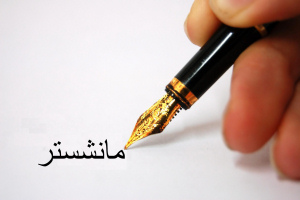Archive safeguards city’s ‘precious’ mix of languages
16 Nov 2010
A web-based archive, launched this week, is to document, protect and support the more than 100 languages spoken in one of Europe’s most diverse cities.

Professor Yaron Matras from The University of Manchester says the site will for the first time provide detailed information on Manchester’s diverse linguistic culture.
Languages spoken in Manchester include Yoruba, Urdu, Yiddish, Kurdish, Romani, Aramaic, Armenian, French, Punjabi, Bengali, Somali and Polish.
Project co-organiser Professor Matras, who is based at the School of Languages, Linguistics and Cultures, said: “Around two thirds of Mancunian schoolchildren are bilingual - a huge figure which indicates just how precious its linguistic culture is.
“This initiative will encourage communities to maintain their heritage languages at home and in their businesses without being compromised by the ever-present English.
“Gathering information about multilingualism will also help local authorities and services to take informed decisions about policies and community needs.”
The site- available at http://mlm.humanities.manchester.ac.uk/ already contains reports - available free -on some of the various languages spoken in Manchester contributed by linguistics students.
The archive will grow as further reports- validated by the team – are added. The public and community groups are also welcome to contribute.
He added: “So little data on this area is available – but we do known that in Manchester’s schools, 65 different languages are spoken.
“Some 30% of secondary school pupils in Manchester – that’s 7,000 people- have a language other than English as their first tongue.
“And if you count the people who come from bilingual households, a figure of multilingual pupils may be as high as 60% of Manchester pupils.
“This project is a unique response to the challenges of a multicultural and multilingual environment.
“We hope it will help inspire others to celebrate Manchester’s cultural and linguistic diversity.”
